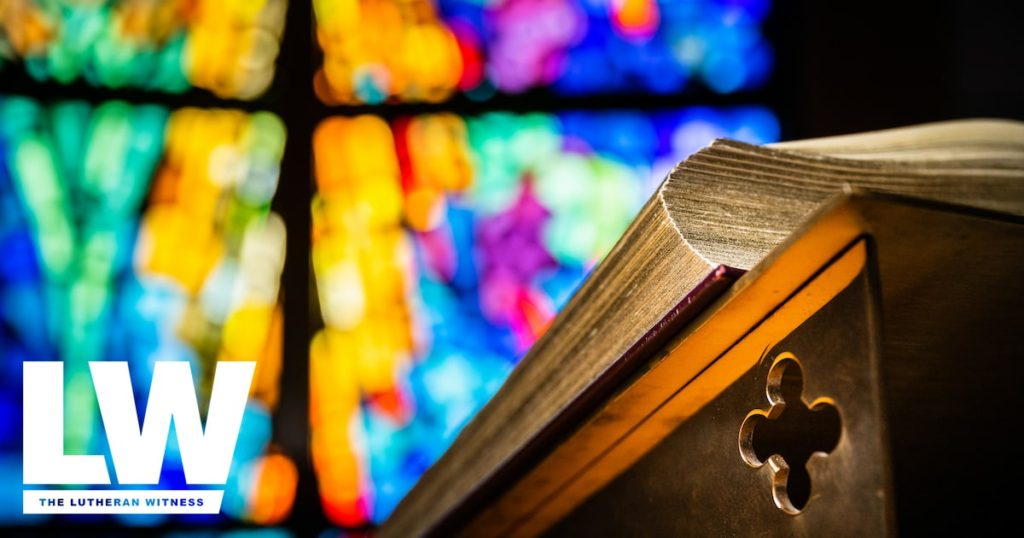by Rev. Dr. Greg Wismar
For Lutheran Christians, the month of November brings a very special day: the anniversary of the birth of Martin Luther on Nov. 10. In 1483, the day after he was born (Saint Martins Day), his father brought him to the parish church at Eisleben, Germany, to be baptized. As such, it is no surprise that he was given the honor of sharing the name of Martin of Tours, the saint commemorated in the Church on Nov. 11. When the commemoration of Martin Luther appears on the Churchs calendar, however, it is not found on Nov. 10. Rather, it is observed annually on Feb.18, the anniversary of the death of Martin Lutheralso in Eisleben, Germanysome 62 years later.
From the earliest days of Christian history, it has been the custom of the Church to honor saints of the past, not on their birthdays but on the day that they died (if that date is known). Choosing an individuals dying day for commemoration places the emphasis on a specific remembrance: the joy of eternal life in the presence of Jesus, the Savior, and all His saints and angels.
In the first Christian centuries, when martyrdom was widespread and facing death for the cause of Christ was common, the date of the executions of Christian people by the Roman authorities was carefully noted and duly remembered by the faithful left behind. As the number of martyrs grew year by year, the numbers of commemorations also grew. Soon every day on the annual calendar held the memory of faithful women and men who had made the good confession that demanded the ultimate sacrifice of their lives. The Commemorations calendar in Lutheran Service Book has a selected listing of some of the most notable saints of centuries past, all of which are remembered on their dying days.
As each geographical area of the growing church developed its own listing of the death dates of faithful Christians, which came to include those who had died natural deaths as well as the martyrs, a concern grew that the names and lives of some of the faithful followers of Jesus in times past were being forgotten. To remedy this potential oversight, the Church established All Saints Day on Nov. 1, a fitting time to thank God for the lives and deaths of all Christian people and to be reminded of their legacy of faith-filled living.
One of the new hymn texts included in Lutheran Service Book and authored by Dr. Carl Daw Jr., helps us give appro-priate thanks for that numberless group not known by name but known to God. The final stanza of We Sing for All the Unsung Saints (LSB 678) concludes:
So we take heart from unknown
saints
Bereft of earthly fame,
Those faithful ones who have
received
A more enduring name:
For they reveal true blessing
comes
When we our pride efface
And offer back our lives to be
The vessels of Gods grace.
In the saints-filled month of November, may we not only remember the saints of old on their dying days but seek to be living heirs of their blessed examples.
November
1 All Saints (Festival)
2 Daniel Payne, teacher, 1893 (Commemoration)
5 Elizabeth, matriarch (Commemoration)
7 Bartholomaeus Ziegenbalg
8 Johann von Staupitz, priest 1524 (Commemoration)
9 Martin Chemnitz, pastor and confessor, 1586 (Commemoration)
11 Martin, Bishop of Tours, 397 (Commemoration)
14 Emperor Justinian, confessor,Emperor of New Rome, 565 (Commemoration)
19 Elizabeth, Princess of Hungary, 1231 (Commemoration)
23 Clement, Bishop of Rome, c. 100 (Commemoration)
29 Noah, prophet (Commemoration)
30 Saint Andrew, Apostle (Lesser Festival)
—
> For more church history, go to www.lutheranhistory.org.
About the Author: Rev. Dr. Greg Wismar is pastor emeritus of Christ the King Lutheran Church, Newton, Conn.
November 2011






